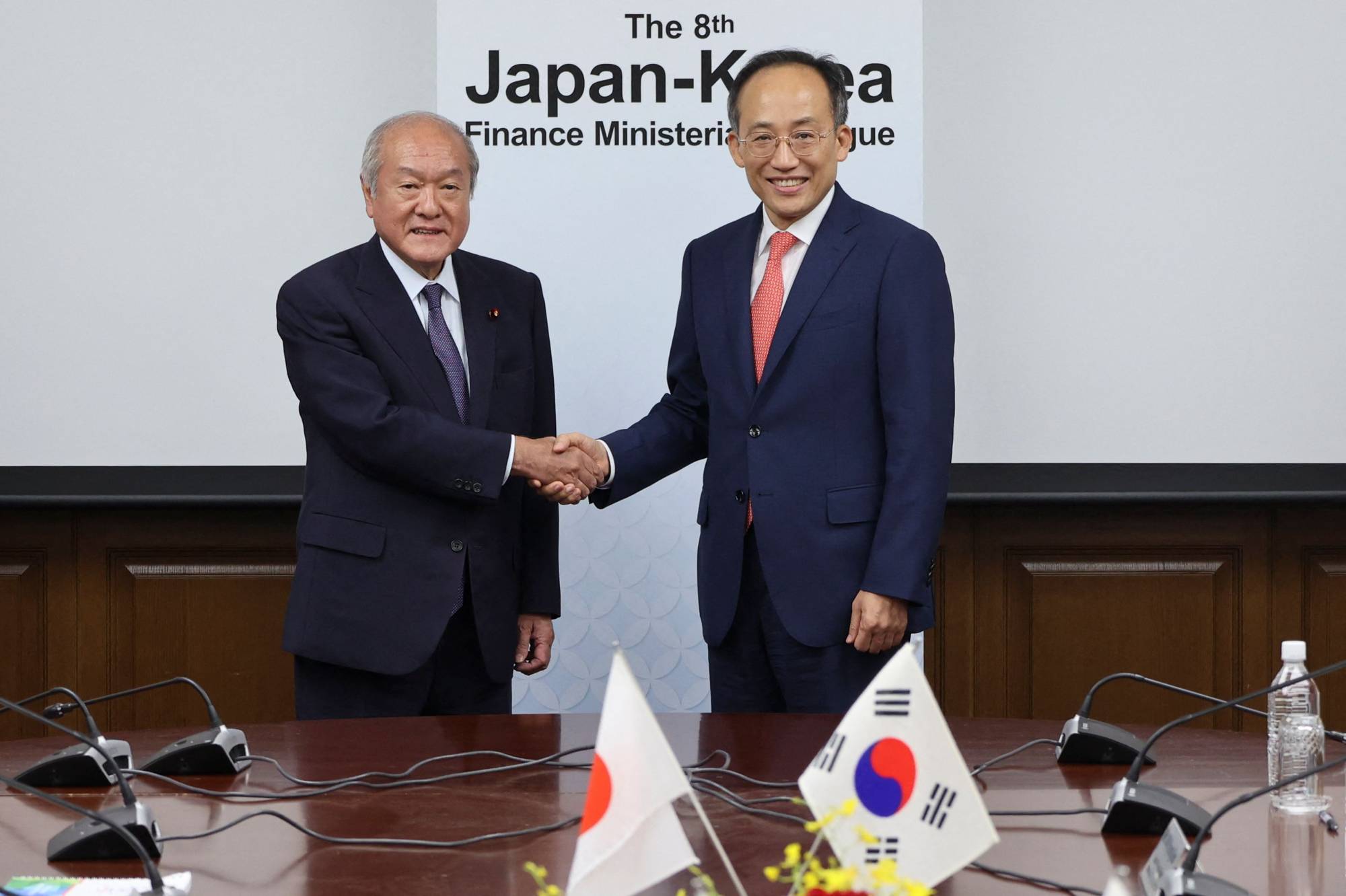Japan and South Korea agreed Thursday to revive a bilateral currency swap deal for the first time in about eight years, another symbolic move that highlights the fast-improving ties between the two countries.
The decision came after Finance Minister Shunichi Suzuki and his counterpart Choo Kyung-ho met in Tokyo during the Japan-South Korea finance dialogue, held for the first time since 2016.
Choo said that it was regrettable that communication between the Japanese and South Korean finance authorities had effectively ruptured “because of various reasons,” even though both are like-minded countries that share the values of liberal democracy and market economic order.


















With your current subscription plan you can comment on stories. However, before writing your first comment, please create a display name in the Profile section of your subscriber account page.